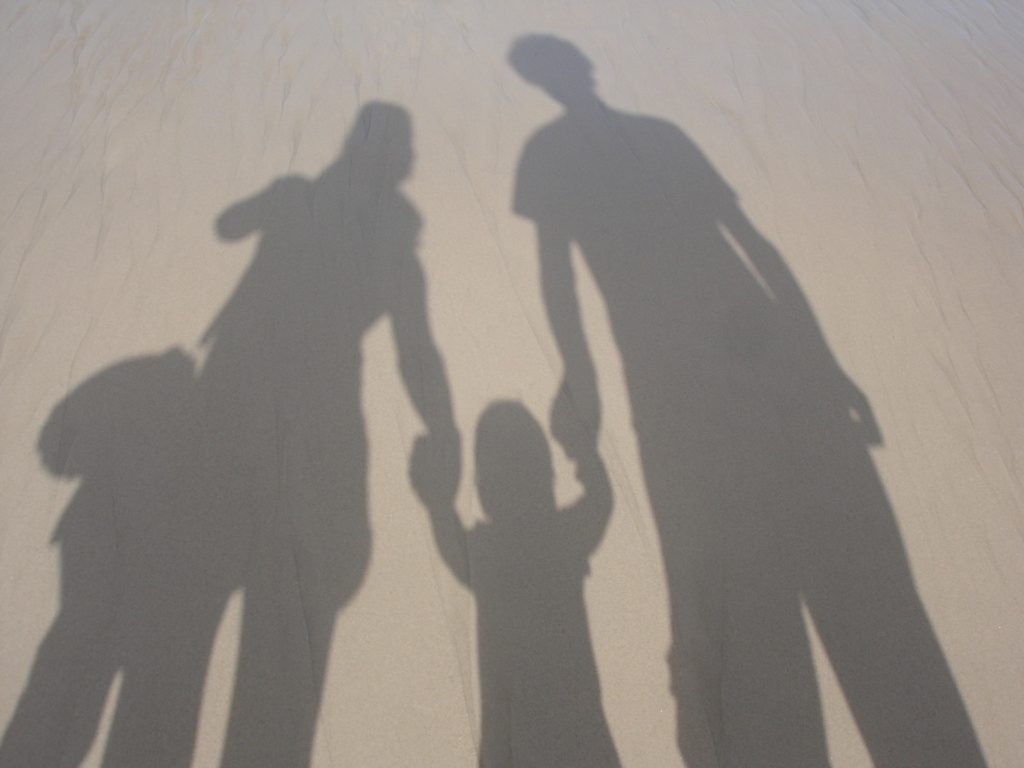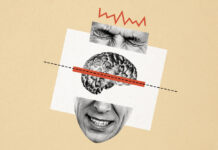A recent meta-analysis conducted by Dr. Thomas Bailey and a team of researchers in Australia finds that trauma in childhood is associated with hallucinations and delusions in individuals diagnosed with psychosis. Their research, published in Schizophrenia Bulletin, includes important clinical implications.
“This is the first meta-analysis to confirm that childhood trauma is related to more severe hallucinations and delusions among people with a diagnosed psychotic disorder,” the researchers write.

Evidence has demonstrated that childhood trauma, including exposure to neglect and/or sexual, physical, and emotional forms of abuse, puts individuals at risk for later developing symptoms of “psychosis,” including hallucinations and delusions. For example, studies have explored how hallucinations may serve as manifestations of intrusion post-trauma.
“Childhood trauma is a risk factor for the development of psychosis. Furthermore, a number of theories propose specific mechanisms by which childhood trauma may contribute to more severe positive and negative psychotic symptoms, some of which are supported empirically.”
Symptoms of psychosis referred to as “positive” are understood to include voice hearing and other hallucinations or delusions. In other words, they are experiences thought to occur in addition to how an individual previously functioned. “Negative” symptoms refer to apathy, social withdrawal, lethargy, impaired attention, and other such experiences seen to be a decline, or loss, of their previous functioning.
Research has explored the development of hallucinations in relation to abuse and delusions as a consequence of neglect, positing that developing a mistrust of others may logically follow. Negative symptoms, on the other hand, have been explored as a result of hyperarousal and biological stress resulting from trauma exposure and coping. Other researchers theorize that negative symptoms arise out of poor attachment relationships.
If a link exists between symptoms of psychosis and childhood trauma, it would be expected that individuals who have experienced childhood trauma demonstrate greater severity in symptom presentations. Ultimately, Bailey and researchers point out that the methodological limitations of single studies and their resulting mixed findings call for a systematic review and meta-analysis to thoroughly investigate the associations between childhood trauma and the severity of symptoms of psychosis.
In this study, Bailey and researchers conduct a systematic review and meta-analysis to examine the connection between childhood trauma and symptom severity across all relevant studies. They hypothesized that childhood trauma would be associated with more severe hallucinations, delusions, and negative symptoms in individuals identified as experiencing psychosis.
“There is an urgent need for this relationship to be clarified, particularly in light of calls for interventions for the treatment of trauma-related psychotic symptoms, which should take into account the specificity of relationships between childhood trauma and certain symptoms if indeed they do exist.”
A literature review was conducted to identify relevant research in which the outcomes featured the relationship between childhood trauma and severity of symptoms of psychosis among individuals with the diagnosis. The systematic review yielded 41 articles. Twenty-nine of these 41 articles were included in the meta-analysis on the basis that sufficient data was available.
Results of the analysis found that the severity of positive symptoms, including hallucinations and delusions, was associated with childhood trauma. Contrary to the researchers’ hypothesis, however, there existed no significant relationship between total childhood trauma or childhood sexual abuse and negative psychosis-related symptoms. Yet, an association was found between negative symptoms and neglect. Additionally, positive symptoms were most robustly connected to childhood sexual abuse relative to neglect.
While the meta-analysis is somewhat limited by the number of studies fitting inclusion criteria and by the methods employed in these individual studies, the researchers highlight the importance of the findings in guiding clinical interventions.
“The results lend support for cognitive and biological theories that traumas in childhood may lead to hallucinations and delusions within psychotic disorders and have important implications for clinical practice.”
Current interventions for symptoms of psychosis and trauma focus on treatments related to posttraumatic stress disorders (PTSD). The current study argues that trauma-focused interventions for symptoms of psychosis should be developed and trialed, especially in application to negative symptoms which have demonstrated resistance to treatment.
“These results have implications for a trauma-informed approach to psychosis service-delivery,” the researchers conclude, “as those with more severe psychotic symptoms are more likely to have experienced childhood trauma.”
****
Bailey, T., Alvarez-Jimenez, M., Garcia-Sanchez, A. M., Hulbert, C., Barlow, E., & Bendall, S. (2018). Childhood Trauma Is Associated With Severity of Hallucinations and Delusions in Psychotic Disorders: A Systematic Review and Meta-Analysis. Schizophrenia bulletin. (Link)















Psychosis means madness. But what is a psychosis symptom?
According to Dr Allen Frances if a person is okay with it, then it doesn’t matter about the symptoms.
If a person is not okay and they seek psychological help then their problem is the same as anyone else’s, surely.
Report comment
“The results lend support for cognitive and biological theories that traumas in childhood may lead to hallucinations and delusions within psychotic disorders and have important implications for clinical practice.”
Or, perhaps the reality is that due to the fact that the DSM considers child abuse to be one of the “V Codes.”
http://valueoptions.com/providers/Handbook/PDFs/Treatment_Guidelines/V_CODES_ABUSE.pdf
And according to this Psychology Today article about these V Codes, the insurance companies will not provide payment to “mental health professionals” for helping child abuse victims and their families, because child abuse is not one of their theorized DSM brain disorders.
https://www.psychologytoday.com/blog/your-child-does-not-have-bipolar-disorder/201402/dsm-5-and-child-neglect-and-abuse-1
This flaw in the DSM billing code/insurance reimbursement laws, and the desire by psychologists and psychiatrists to get paid, has resulted in millions of child abuse victims being misdiagnosed with the billable DSM disorders, like psychosis.
There is evidence this has happened given, “the prevalence of childhood trauma exposure within borderline personality disorder patients has been evidenced to be as high as 92% (Yen et al., 2002). Within individuals diagnosed with psychotic or affective disorders, it reaches 82% (Larsson et al., 2012).”
But the problem with giving child abuse victims – who are crime victims – not brain diseased people, the DSM “borderline” and “psychotic or affective disorder” treatments, which call for combining the antidepressants and/or antipsychotics, is that these drugs can create both the negative and positive symptoms of schizophrenia.
The negative symptoms of schizophrenia can be created via neuroleptic induced deficit syndrome and the positive symptoms of schizophrenia (including psychosis) can be created via antidepressant and/or antipsychotic induced anticholinergic toxidrome.
https://en.wikipedia.org/wiki/Neuroleptic-induced_deficit_syndrome
https://en.wikipedia.org/wiki/Toxidrome
And since neither of these medically known, psychiatric drug induced, forms of medical poisoning is listed in the DSM, the “mental health professionals” have an out of the billing code “bible,” out of the mind problem. Resulting in these millions of child abuse victims receiving more and more incorrect, but billable DSM labels, and more and more drugs, rather than any actual help healing from the child abuse.
Make no mistake, the first thing my psychiatrist wanted to do, once he’d heard that the medical evidence of the abuse of my child had been handed over, was to drug my child. The second thing he wanted to do was majorly tranquilize me with every single neuroleptic on the market. But since I knew drugs don’t cure a person of their legitimate concerns of child abuse, I had to leave that lunatic.
I do believe the “mental health industry” should get the insurance coverage laws changed. So some day you may be able to be reimbursed for actually helping child abuse victims. Instead of continuing to defame them with your made up disorders, and whack them out their minds with your drugs, on a massive scale.
Report comment
“Psychosis” doesn’t help!
Report comment
No it does not, Fiachra, you are correct. Turning child abuse victims into “psychotic” people with the psychiatric drugs, on the massive scale today’s psychiatric industry is wittingly or unwittingly doing this, is most certainly the opposite of helping child abuse victims.
The “mental health industry” needs to get the insurance reimbursement laws changed, so they may legally be paid to help child abuse victims, without the need to first defame the child abuse victims with some other DSM disorder, in order to actually get paid for “helping” child abuse victims.
And one would hope the majority within the “mental health industries” would actually like to help, rather than continue to knowingly or unknowingly merely profiteer off of harming, the weakest within our society, the child abuse victims.
Report comment
Then why don’t Australian shrinks and their enablers STOP adding to the trauma these already vulnerable people have experienced? Surely adding further trauma by forcing “treatment” is NOT helpful.
Having being subjected to a psych ward in an Australian hospital (Canberra) I can say it was incredibly traumatic to be locked up and drugged with neurotoxic substances against my will. It was torture, not medical help. And I found just as destructive was ACT Human Rights Commission’s response (dismissal and shaming) to my complaint about my treatment at the hands of a psychiatrist.
All I can say is that the practice of psychiatry and all the structures that support its ability to coerce, abuse and further traumatise vulnerable people should be outlawed. NOW.
Report comment
I was a psychotherapist for 50 years and found it much more productive and satisfying to talk to patients and take a history than to try to drug their symptoms out of sight. With nonpsychotic patients who were willing to talk with me it wasn’t difficult to understand the trauma that had produced the symptoms. This helped the patient to make sense of their life and feelings.
With psychotic patients the trauma was often from an even earlier stage of life, and the therapy not only required understanding and working through, but often required therapy with a baby’s bottle to counteract the damage done by the absence of good enough mothering.
We often seem to forget that we are mammals, and in nature animals that don’t get good mothering die. But we humans are born very prematurely in order to get our big heads through the birth canal, and are sometimes kept alive without good enough mothering.
Report comment